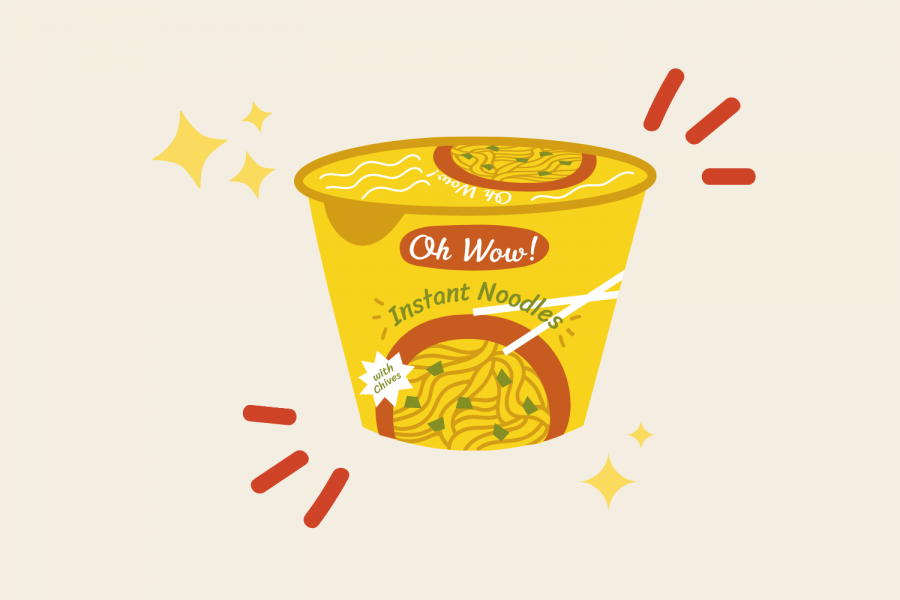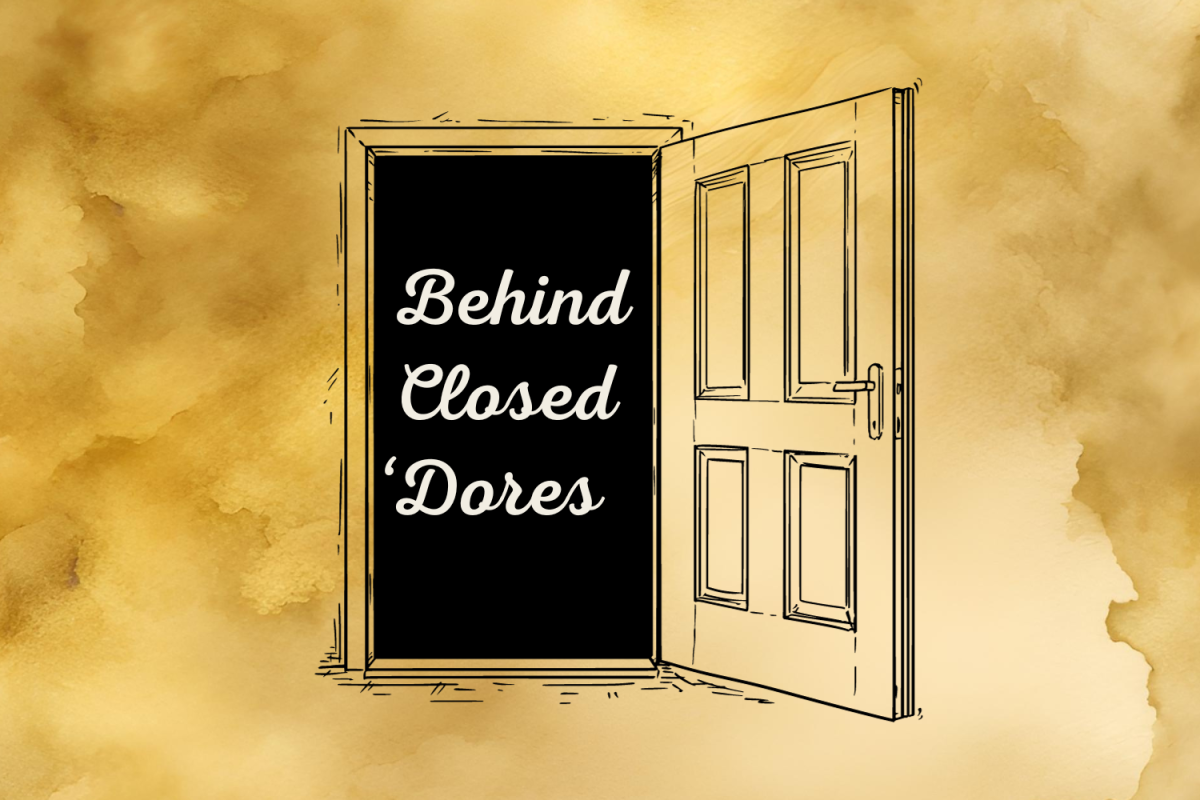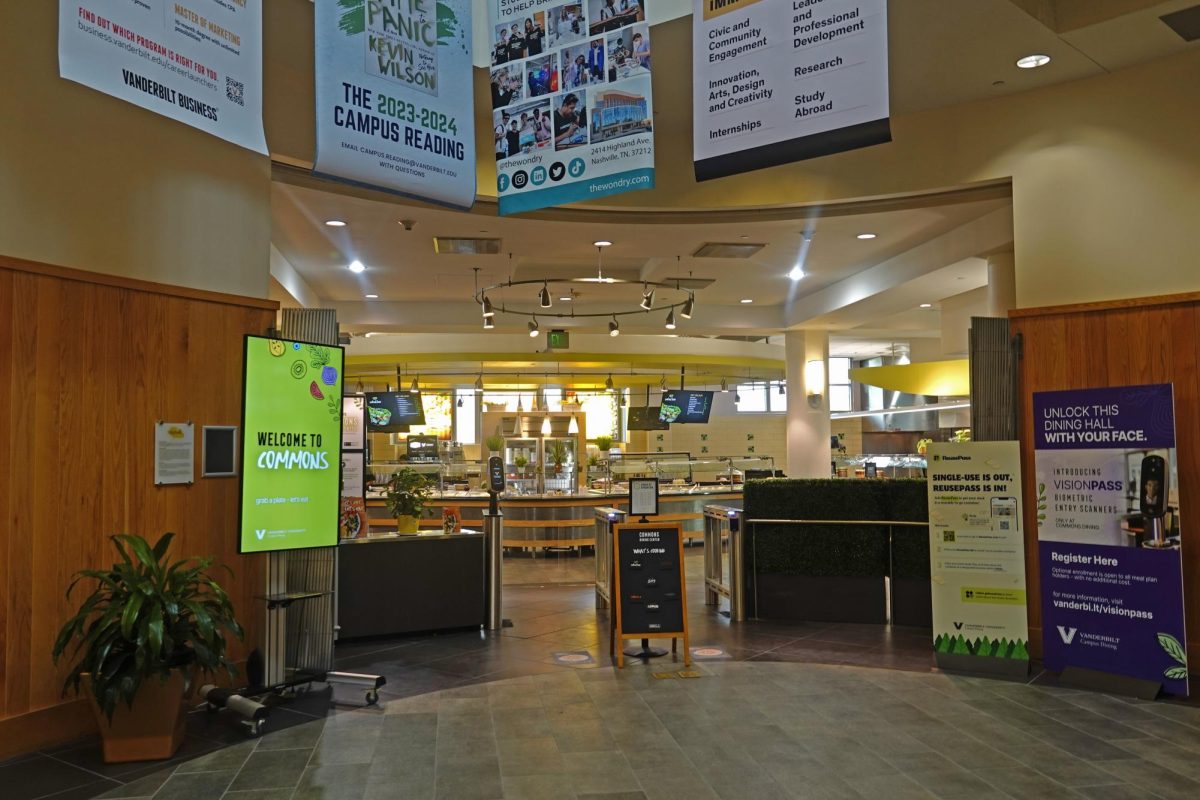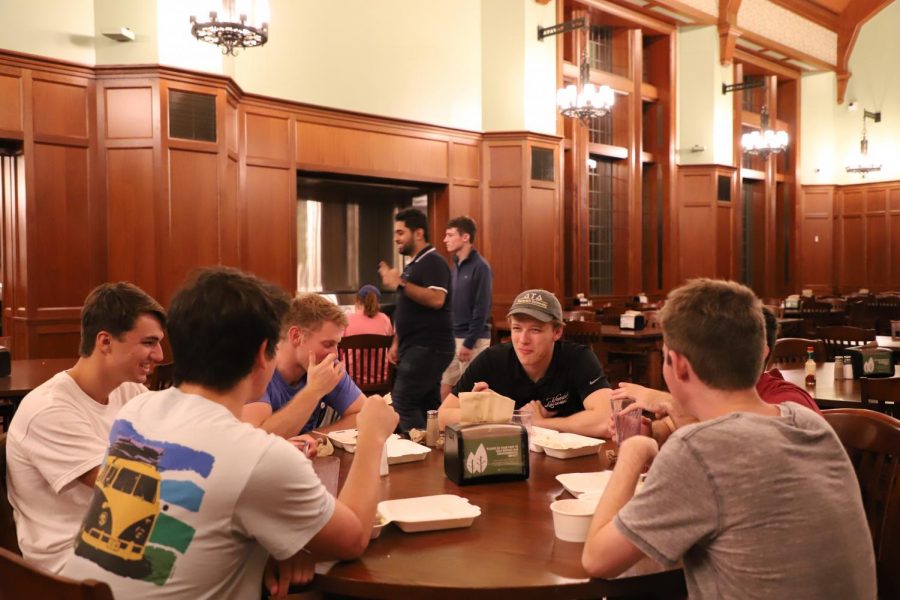Ramen, a fine delicacy known to every college student, originated from Yokohama Chinatown, Japan, as a quick search on Google reveals. Today, it’s everywhere. The simple yet seemingly mind-blowing combination of cooked noodles, sauce and occasionally vegetables or meat has spread throughout the globe, touching a little piece of every continent.
Especially on college campuses, people just can’t get enough of it. Why? Well, we’re here to break that down for you Commodores. We sat down with some of your classmates and got the inside scoop on what makes ramen fans tick, how much students really like the dish and whether or not it’s actually good for you.
First, for a little background—ramen originally grew in popularity during the early 1900s due its accessibility to the working class. It became widely available from increased China-Japanese trade and were originally known as “Chinese Soba” noodles up until the 1950s. Over time, ramen became a more and more gourmet dish with restaurants popping up all over Japan and its consumer base expanding. At its core, the dish is supposed to be a type of noodle soup (sorry chicken noodle, you come second to almost none) served with a powerfully flavorful broth, meat and vegetables. Several variations of the dish exist including Tonkotsu, Miso, Shio and Shoyu ramen. But how healthy is it really?
Unfortunately, according to a comprehensive article by Healthline, ramen really isn’t that good for you. Though ramen noodles tend to be low in caloric content, they lack a lot of nutritional value. In short, the noodles lack Vitamin A, C and B12 as well as calcium, magnesium and potassium. This is specifically in relation to instant ramen noodles, which are typically the more popular kind around campuses, not fresh-made ramen noodles that tend to lend more to a balanced diet. Ramen also has an excessive amount of sodium, a problematic characteristic, as too much sodium in the body has been linked to increased risk of stomach cancer, heart disease and stroke
Even more notably, instant ramen noodles contain flavor enhancers such as Monosodium Glutamate (MSG) and Tertiary butylhydroquinone (TBHQ). Studies have revealed that too much consumption of TBHQ can lead to increased risk of lymphoma and liver enlargement whereas overconsumption of MSG has been linked to nausea, headaches and high blood pressure, among other symptoms. Nonetheless, eat your soup in moderation … a little ramen never killed anyone. Some Vanderbilt students seem to agree with this statement, and we asked people why they love the noodle soup.
First-year Pedro Rosales-Diaz weighed in on why he is so fond of ramen and why he believes others are as well.
“It’s easy to just put it in the microwave and it’s less time that you need to spend to go to the dining hall, especially if you have an upcoming test or final,” Rosaes-Diaz said, stating that he consumed “usually two or three packets or cups” of ramen a week. “It’s definitely not healthy but do I still eat it? Yes I do.”
Other students shared the same sentiment. When first-year Morrigan Dunlap-Loomis was asked how ramen makes her feel, she said “nice and warm inside,” highlighting the comforting nature of the food.
“Do I think it’s healthy? No. But I don’t eat it to be healthy, I eat it to comfort me,” Dunlap-Loomis said..
Despite the evident negative aspects of the food, students are still keen on consuming ramen because of its ease of access and comforting nature—again, a callback to the chicken noodle soup trope, we get how you feel!
Sophomore Daniel Ardity had a slightly different take on ramen in general.
“I probably consume ramen about once every other week,” he said, noting that most of his ramen comes from Shokku Ramen and not the typical Cup Noodles. “I don’t think I’d say it’s uniquely unhealthy since the broth comes with vegetables and I’d probably consume the carbs anyways.”
However, not everyone is as big a fan of ramen. Though first-year Brina Ratangee sees the appeal of late-night ramen, she prefers to eat during normal hours and snack in between.
“I’d say quite a few of my friends eat it like whenever we eat late at night they’ll bring ramen with them,” Ratangee said. “Another thing is that a lot of the ramen I see has beef or pork in it, and I can’t eat that anyway.”
The popularity of ramen has run so deep into colleges that it has almost become a culture of its own. Regardless of the type of ramen and whether or not it has adverse health effects, students on college campuses including our own have spoken their truths—they love ramen, and it’s here to stay. Though not everyone enjoys ramen as much as their neighbors, students are still aware of how common the practice of eating ramen is even if they disagree with it.
In any case, it is important that everyone consuming ramen be aware of its potential effects on the body and then make the educated decision to stop or continue, because let’s face it, it makes them happy. As always, too much of anything can prove dangerous and we encourage everyone to eat healthy during those late night snack seshes. Happy feasting, everyone!









